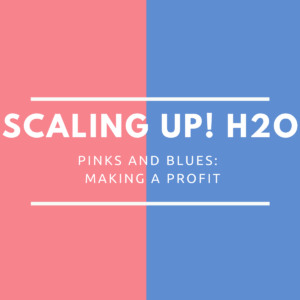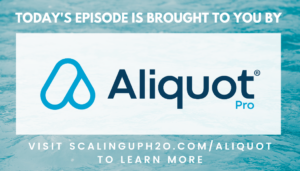 A few episodes ago, I talked about the economics of Price Increases and what happens if we don’t increase our prices. I am going to talk more about that today. Supply Chain Issues are something that the Scaling UP! Nation constantly thinks about, and that is why I dedicated another episode to talk about this very topic.
A few episodes ago, I talked about the economics of Price Increases and what happens if we don’t increase our prices. I am going to talk more about that today. Supply Chain Issues are something that the Scaling UP! Nation constantly thinks about, and that is why I dedicated another episode to talk about this very topic.
Whether you are a business owner or an employee, Supply Chain Issues impact you. What can you do today to make sure that your company is sustainable and makes a profit? How can you make a profit in this economy? How can you work with your customers to maximize your resources and time? Buckle up; this episode is packed with information. I even did Math, and I know some of you, listeners, don’t like it when I do.
Bottom line: Today, we’re going to talk about how you can make a profit.
Your roadside friend, as you travel from client to client.
-Trace
Timestamps:
Celebrating special days in September and other events for Water Treaters [01:29]
How do Supply Chain Issues impact you as an employee? [07:59]
How do you make sure that your company is sustainable? [12:46]
How do you increase profit? [14:34]
How can you overcome the fear of increasing prices? [21:58]
What happens to your profit if you don’t increase your prices? [24:06]
How can we maximize our resources? [26:55]
Thinking On Water With James [33:08]
Thinking On Water With James:
In this week’s episode, we’re thinking about keeping chemical dosing pumps primed. How does the chemical product being pumped impact how well a dosing pump stays primed? Is flooded suction always better than a suction lift or vice versa? When would one be desired over the other? Does the distance a pump sits above the liquid level matter? How might bubbles and gasses that build up in tubing be removed? How do you know when a pump has lost prime? Can you tell by sound or touch? How could a system alert you when priming is lost? Take this week to think about keeping your chemical dosing pumps primed.
Quotes:
“We are in the water treatment industry together, and by sharing information, by working with each other, we’re not only going to get through Supply Chain Issues, but we are also going to be better by going through it together.” – Trace Blackmore
“Company Profit is not a bad thing. If the company is profitable, it can sustain itself. If a company is not profitable, that company goes out of business.” – Trace Blackmore
“EBIDTA or Earnings Before Interest, Taxes, Depreciation and Amortization are the things that we can control in our companies that tell us what our profit is.” – Trace Blackmore
“The best thing any company can do is to increase their prices, the second best thing that a company can do is reduce their cost, but if we can sell more, that’s even better.” – Trace Blackmore
“There are three ways to increase Profit: price increase, reduce cost, and sell more.” – Trace Blackmore
“Companies can sell themselves out of business. More Sales = More Costs.” – Trace Blackmore
“Profitability Trifecta: raising prices, increasing customers, decreasing overall costs” – Trace Blackmore
“When we understand the numbers, when we understand how much things cost, and what those costs mean to our company, we can make better decisions each and every day.” – Trace Blackmore
Connect with Scaling UP! H2O:
Email: corrine@blackmore-enterprises.com (podcast producer)
Submit a show idea: Submit a Show Idea
Trace Blackmore on LinkedIn: in/traceblackmore/
Scaling UP! H2O on Facebook: @H2OScalingUP
Scaling UP! H2O on YouTube: ScalingUpH2o.com/YouTube
Article Mentioned:
Yale School of Management: On the Nature of Price Increases
Links Mentioned:
204 Pinks and Blues Questions From The Nation! Being Profitable
221 Raw Materials Supply Chain Update Roundtable
243 Pinks And Blues: Price Increases
Yale School of Management: On the Nature of Price Increases
Events:
Check out our Scaling UP! H2O Events Calendar where we’ve listed every event Water Treaters should be aware of by clicking HERE.
Industrial Water Week – October 3 to 7, 2022


